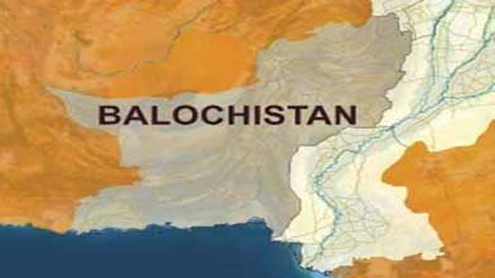
Balochistan has many faces to the world. Many scandals, including the Reko Diq and the murder of Nawab Akbar Bugti, have brought it into the global limelight. Today, it is the force of many international forums for several indigenous reasons, as well as certain vested interests.
But the history of trouble in the province, indeed, dates beyond the inception of Pakistan. So, it would be interesting to understand the issues of the province and steps taken by the government to alleviate the grievances of Baloch people.
Balochistan is suffering from basic economic and development problems, besides complex regional and international issues. Illiteracy, unemployment and state oppression are the symptoms of a prolonged ailment visible to the naked eye, but the underlying reasons for the status quo are complex and controversial. The Baloch tribes and the settlers from other provinces have been deprived of the basic amenities, such as clean drinking water, supply of natural gas and electricity in the remote areas, and the availability of health and education facilities. In addition, law and order are unheard of in the province.
An interesting fact is that the Balochistan has as many ministers as members in the Assembly less one who is non-resident in the country. A total of 65 ministers empowered with development funds have failed to carry out social development works in the province to improve the quality of life of the masses; it is important to add though that the NFC Award and Aghaz-e-Haqooq-e-Balochistan package allocated additional funds for the province. In the four years, since this Assembly came into power, why it has not been able to deliver when it had the financial resources available at its disposal? Where have all the funds vanished?
The province has a history of neglect, exploitation and repression. But who is primarily responsible for this subjugation? There have been five insurgencies and uprisings against state oppression so far – i.e. 1948, 1958-59, 1962-63, 1973-77; whereas, the fifth one started in 2002 that escalated after Bugti’s murder in 2006. Sid by side, the controversy about the circumstances in which the military operation was carried out prevails as the case is pending before the Supreme Court. The presence of the Frontier Corps in Balochistan since has become the norm; this too has given rise to a surge of reactionary extremism that has sabotaged peace and development in the province. Next, the issue of missing persons, mutilated bodies, abductions and rapes are being reported in the media.
Anyway, the mishandling of the situation in the province is synergised by the lacunae in the law, which is exploited by all in a position to do so. As yet, there has been no comprehensive analysis of this issue outlining the problems at hand. As said earlier, the NFC Award and the Balochistan relief package were devised on a reactive basis that failed to address the core issues. Meanwhile, once the resources have been made available and if they still do not reach the grassroots level, then who is to blame?
It seems that the crux of the problem is that the parliamentarians are not interested in resolving the issue. The call for the APC has also diffused. While all the political forces are supporting the government on issues of common interest, it has failed to resolve the Baloch problem. If both the federal and provincial governments do not address this issue immediately, then it would have serious consequences for the country’s future. If the US can hold dialogue with Taliban, why can’t we sort out differences of our political leaders in Pakistan? Why can’t he go to the dissented Balochi leaders to find a solution?
International interference too in Balochistan is one of the major reasons that has led to the present mess. The rich oil, mineral and gas reservoirs in the province, along with its strategic location with regard to the Gwader Port, has drawn the attention of international players. The resolution of US Congress on human rights in Balochistan is a case in point.As a final word, prioritising Balochistan’s problem to resolve it on a war footing is the need of the hour. Political dialogue and development is the only solution to the issue. More so, development should be made through the elected representatives of the people and not sardars or tribal leaders as has been the trend in the past. – Nation












